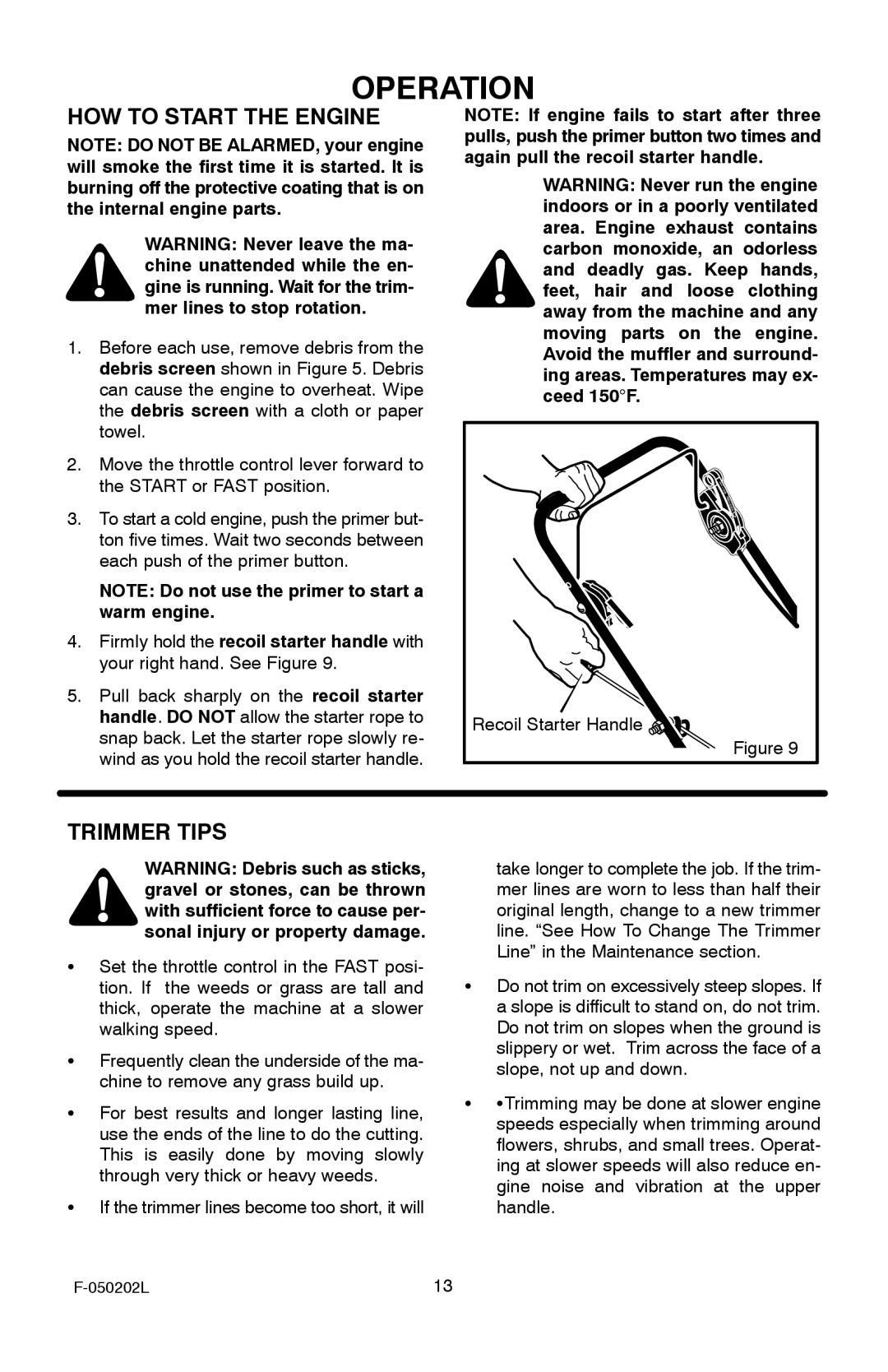
OPERATION | ||
HOW TO START THE ENGINE | NOTE: If engine fails to start after three | |
NOTE: DO NOT BE ALARMED, your engine | pulls, push the primer button two times and | |
again pull the recoil starter handle. | ||
will smoke the first time it is started. It is | ||
WARNING: Never run the engine | ||
burning off the protective coating that is on | ||
the internal engine parts. | indoors or in a poorly ventilated | |
WARNING: Never leave the ma- | area. Engine exhaust contains | |
carbon monoxide, an odorless | ||
chine unattended while the en- | and deadly gas. Keep hands, | |
gine is running. Wait for the trim- | feet, hair and loose clothing | |
mer lines to stop rotation. | away from the machine and any | |
1. Before each use, remove debris from the | moving parts on the engine. | |
Avoid the muffler and surround- | ||
debris screen shown in Figure 5. Debris | ||
ing areas. Temperatures may ex- | ||
can cause the engine to overheat. Wipe | ||
ceed 1505F. | ||
the debris screen with a cloth or paper | ||
| ||
towel. |
| |
2. Move the throttle control lever forward to |
| |
the START or FAST position. |
| |
3. To start a cold engine, push the primer but- |
| |
ton five times. Wait two seconds between |
| |
each push of the primer button. |
| |
NOTE: Do not use the primer to start a |
| |
warm engine. |
| |
4. Firmly hold the recoil starter handle with |
| |
your right hand. See Figure 9. |
| |
5. Pull back sharply on the recoil starter |
| |
handle. DO NOT allow the starter rope to | Recoil Starter Handle | |
snap back. Let the starter rope slowly re- | ||
Figure 9 | ||
wind as you hold the recoil starter handle. | ||
| ||
TRIMMER TIPS
WARNING: Debris such as sticks, gravel or stones, can be thrown with sufficient force to cause per- sonal injury or property damage.
SSet the throttle control in the FAST posi- tion. If the weeds or grass are tall and thick, operate the machine at a slower walking speed.
SFrequently clean the underside of the ma- chine to remove any grass build up.
SFor best results and longer lasting line, use the ends of the line to do the cutting. This is easily done by moving slowly through very thick or heavy weeds.
SIf the trimmer lines become too short, it will
take longer to complete the job. If the trim- mer lines are worn to less than half their original length, change to a new trimmer line. “See How To Change The Trimmer Line” in the Maintenance section.
SDo not trim on excessively steep slopes. If a slope is difficult to stand on, do not trim. Do not trim on slopes when the ground is slippery or wet. Trim across the face of a slope, not up and down.
SSTrimming may be done at slower engine speeds especially when trimming around flowers, shrubs, and small trees. Operat- ing at slower speeds will also reduce en- gine noise and vibration at the upper handle.
13 |
